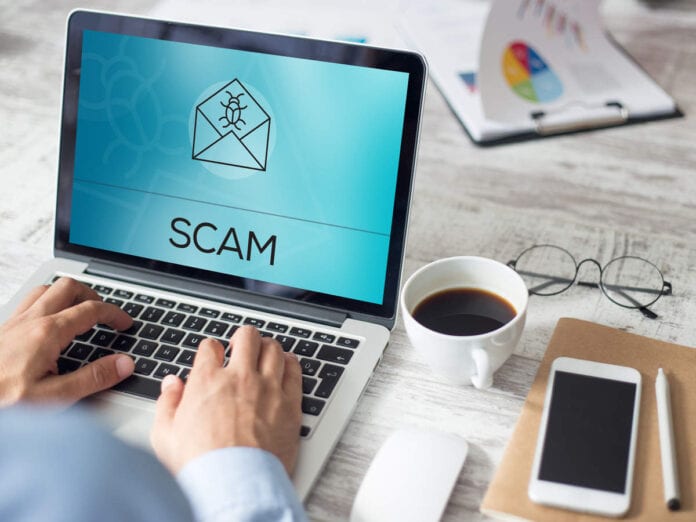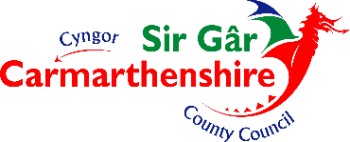Unscrupulous criminals are exploiting fears over coronavirus COVID-19) to prey on members of the public, particularly older and vulnerable people who are isolated from their family and friends.
The council’s Trading Standards team is warning residents in Carmarthenshire to remain vigilant following a rise in coronavirus-related scams that seek to benefit from people’s concern and uncertainty.
Residents should ignore scam products such as supplements and anti-virus kits that falsely claim to cure or prevent COVID-19. In some cases, individuals may be pressurised on their own doorsteps to buy anti-virus kits or persuaded into purchasing products that are advertised on their social media feeds. These are only offered by the NHS.
Some call centres, that previously targeted consumers with dubious health products, are now offering supplements that supposedly prevent COVID-19. There is currently no vaccine or cure.
Communities are also being urged to look out for signs of neighbours being targeted by doorstep criminals. While there are genuine groups of volunteers providing help during self-isolation, there have been reports of criminals preying on residents – often older people or people living with long-term health conditions – by cold-calling at their homes and offering to go to the shops for them. The criminals often claim to represent charities to help them appear legitimate before taking the victim’s money.
There are genuine charities providing support, so residents should be vigilant and ask for ID from anyone claiming to represent a charity.
Executive Board Member for Public Protection Cllr Philip Hughes said: “Criminals are exploiting the coronavirus pandemic to scam people in a variety of ways.
“As more people stay indoors and work from home, there is more opportunity for criminals to try and trick people into parting with their money at a time when they are anxious and uncertain about the future.
“In particular, older, more vulnerable people who are self-isolating are likely to be targeted over the phone, or in person.
“It is important that we continue to raise awareness of these scams and protect ourselves, and the vulnerable people in our communities, the best we can.”
Residents are being urged to keep in contact with family members regularly and inform them of the most prolific scams and the possible dangers to them.
For further help and advice please email tradingstandards@carmarthenshire.gov.uk or call 01267 234567.
If you think you have been scammed call Action Fraud on 0300 123 2040, or for advice call the Citizens Advice Consumer Helpline on 0808 223 1133.
Tips to avoid being scammed:
Be cautious and listen to your instincts. Don’t be afraid to hang up, bin it, delete it or shut the door. Take your time; don’t be rushed. If it sounds too good to be true it probably is.
Only purchase goods from legitimate retailers and take a moment to think before parting with money or personal information.
Avoid paying for goods and services by bank transfer as that offers you little protection if you become a victim of fraud. Instead, use a credit card or payment services such as PayPal. If you have made a payment, inform your bank as soon as possible, they can help you prevent any further losses. Monitor your bank statements regularly for any unusual activity.
If someone claims to represent a charity, ask them for ID. Be suspicious of requests for money up front. If someone tries to pressurise you into accepting a service, they are unlikely to be genuine. Check with family and friends before accepting offers of helps if you are unsure.
Protect your financial information, especially from people you don’t know. Never give your bank card or PIN to a stranger.
If you are online, be aware of fake news and use trusted sources such as .gov.uk or NHS.uk websites. Make sure you type the addresses in and don’t click on links in emails.
Never install any software, or grant remote access to your computer, as a result of a cold call.
Scams include:
- Criminals targeting older people on their doorstep and offering to do their shopping or collect medication. Thieves take the money and do not return.
- Doorstep cleansing services that offer to clean drives and doorways to kill bacteria and help prevent the spread of the virus.
- In Carmarthenshire, there has also been recent reports of older residents being targeted by cold-callers to carry out gardening work for excessive cash payment. There is no need to have any unnecessary work, such as home improvements or gardening, carried out at this time
- Emails claiming that you can get a refund on taxes, utilities or similar are usually bogus and they are just after your personal and bank details.
- Email scams that trick people into opening malicious attachments, which put people at risk of identity theft by accessing personal information, passwords, contacts and bank details. Some of these emails have lured people to click on attachments by offering information about people in the local area who are affected by coronavirus.
- Fake online resources – such as false Coronavirus maps – that deliver malware such as AZORult Trojan, an information stealing program which can infiltrate a variety of sensitive data. A prominent example that has deployed malware is ‘corona-virus-map[dot]com’.
- Companies offering fake holiday refunds for individuals who have been forced to cancel their trips. People seeking refunds should also be wary of fake websites set up to claim holiday refunds.
- Fake sanitisers, face masks and coronavirus swabbing kits sold online and door-to-door. These products can often be dangerous and unsafe. There are reports of some potentially harmful hand sanitiser containing glutaral (or glutaraldehyde), which was banned for human use in 2014.
- Reports of some businesses potentially attempting to profit from the current situation with price rises for certain products and services. Higher prices in shops may be a reflection of the retailer being charged a higher price by their suppliers. However, the Competition and Markets Authority is closely monitoring the situation and will take action where appropriate.
- As more people self-isolate at home there is an increasing risk that telephone scams will also rise, including criminals claiming to be your bank, mortgage lender or utility company. Your bank will never ask for your bank details over the phone.
- Be wary of unsolicited emails and texts offering questionably good deals, and never respond to messages that ask for your personal or financial details.
- New mobile phone applications that claim to give you updates on the virus but instead, they lock your phone and demand a ransom.
- A scam text telling people they are being given a £250 fine because they have been out of the house ‘more than once’. The message claims to have been sent by GOV.UK and claims the fine is due to ‘irresponsible behaviour’ and goes on to say the charge could increase to £5,000 and/or arrest.
- There have been reports of thieves extorting money from consumers by claiming they are collecting donations for a COVID-19 ‘vaccine’.
- Illegal money lenders are expected to prey on people’s financial hardship, lending money before charging extortionate interest rates and fees through threats and violence. Speak with a trusted friend or family members first if you’re using a loan company you’re unfamiliar with, or if the lender requires an up-front fee. Use the Financial Conduct Authority’s (FCA) register to check if the company is regulated by the FCA.
Help keep news FREE for our readers
Supporting your local community newspaper/online news outlet is crucial now more than ever. If you believe in independent journalism, then consider making a valuable contribution by making a one-time or monthly donation. We operate in rural areas where providing unbiased news can be challenging. Read More About Supporting The West Wales Chronicle























